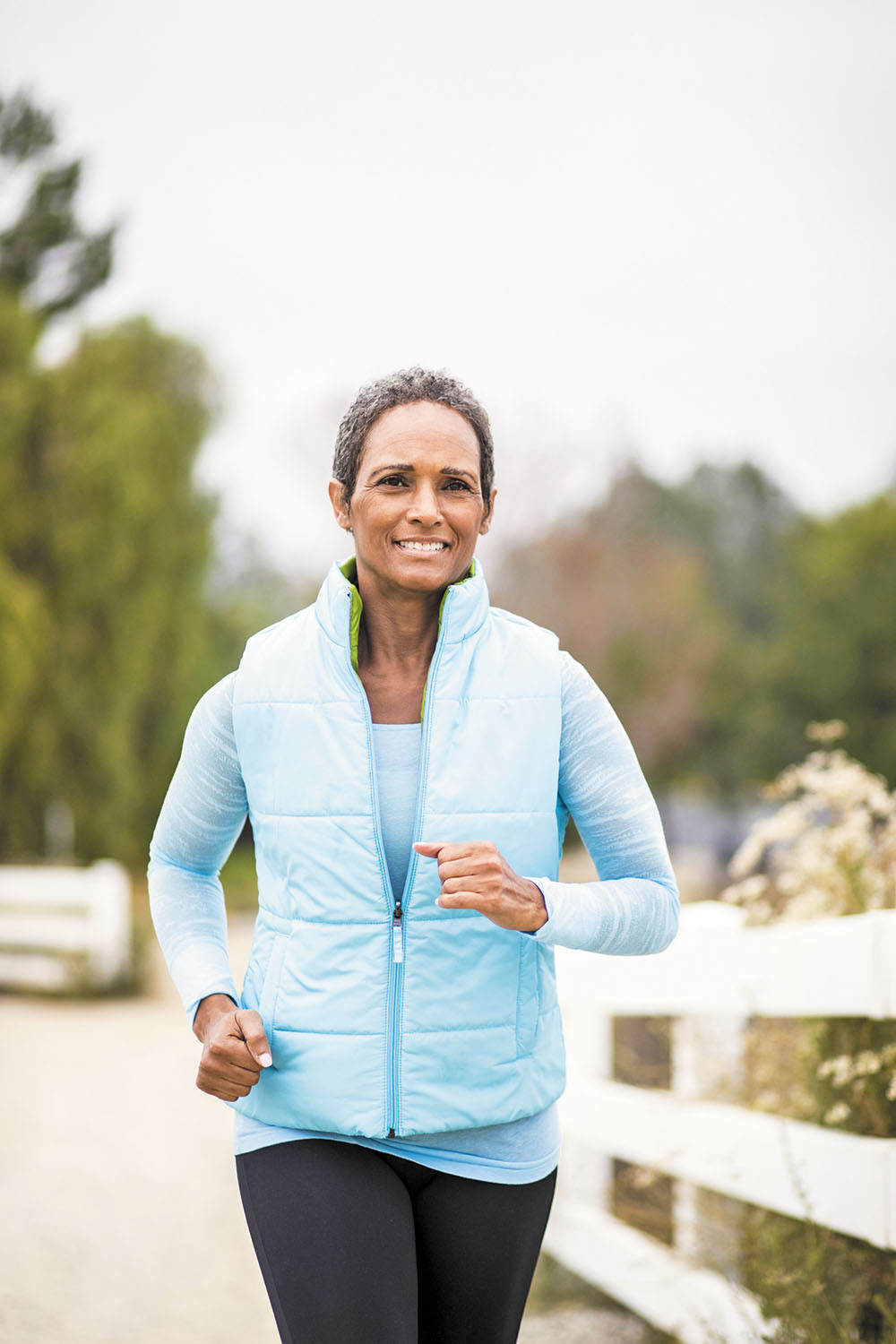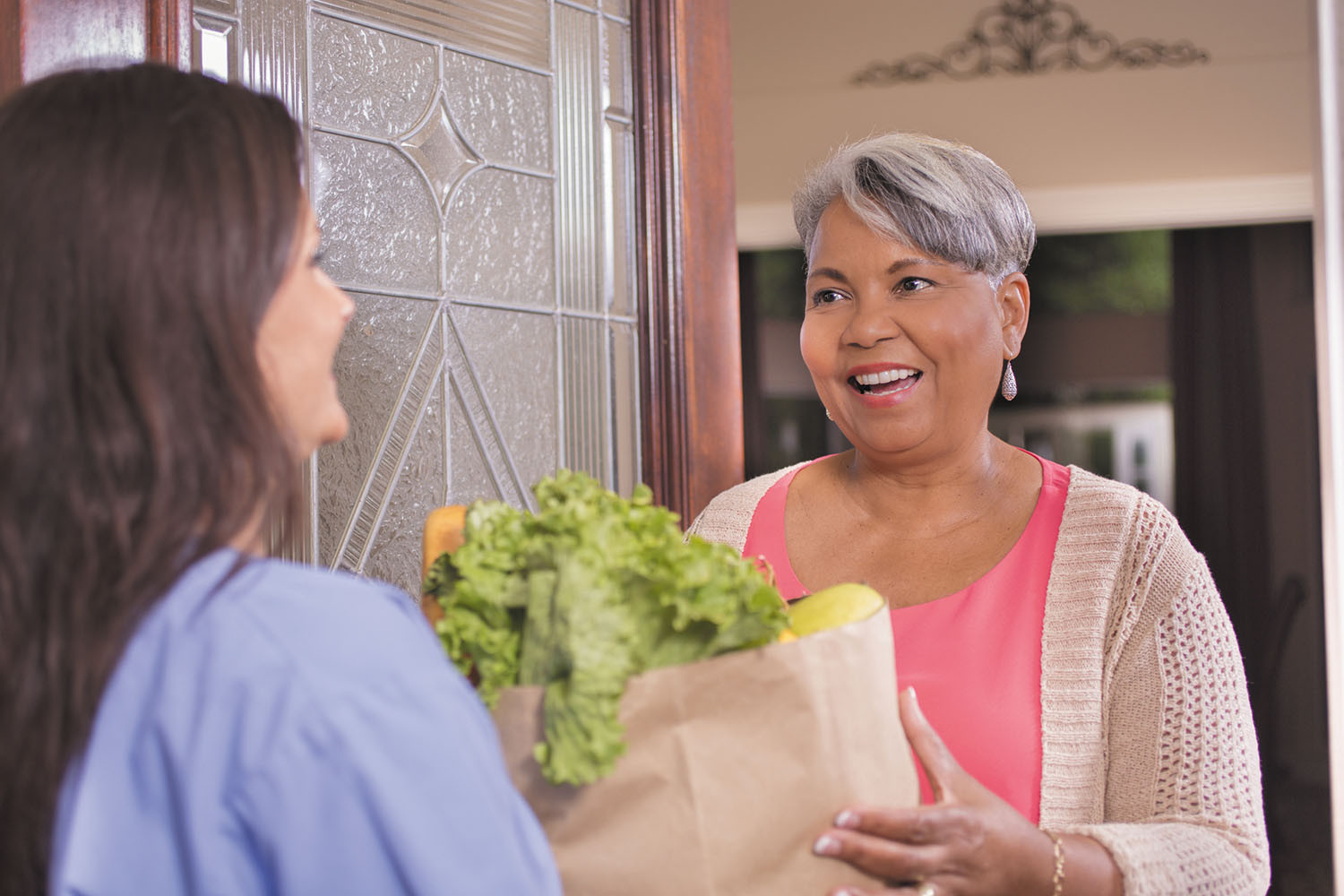
How does prostate cancer treatment affect mental health?

5 timeless habits for better health

What are the symptoms of prostate cancer?

Is your breakfast cereal healthy?

When pain signals an emergency: Symptoms you should never ignore

Does exercise give you energy?

Acupuncture for pain relief: How it works and what to expect

How to avoid jet lag: Tips for staying alert when you travel

Biofeedback therapy: How it works and how it can help relieve pain

Best vitamins and minerals for energy
Exercise & Fitness Archive
Articles
The act of balancing
Maintaining proper balance as you age requires attention, strength, and flexibility.
One skill that can sharply decline with age, and often with little warning, is your sense of balance.
"As people age, changes in flexibility, muscle strength and power, body sensation, reflexes, and even mental function all contribute to declining balance," says Dr. Brad Manor, associate director of the Mobility and Falls Translational Research Center with Harvard-affiliated Hebrew SeniorLife. "You need to work on all these factors to maintain a strong sense of balance."
Can I do anything to prevent osteoporosis?
Ask the doctors
Q. I know that osteoporosis is linked to hereditary factors that I can't change. But are there things I can do to reduce my risk?
A. It's true that many risk factors for osteoporosis, such as your sex, age, and genes, are not things you can change. But there are things you can do to improve your bone health. This includes adopting a healthy diet that is rich in calcium and getting enough vitamin D, which can help maintain and improve bone health. Regular exercise can also help strengthen your bones or prevent bone loss. In particular, activities that put stress on your bones, such as jumping, running, and weight-bearing exercises, can stimulate bone cells to produce proteins that bolster bone strength. In children, these activities can actually increase bone density. While adults don't gain the same degree of benefit that kids do, exercise can still have moderate effects on bone, helping to maintain strength that might otherwise be lost. To further protect bone health, cut down on unhealthy habits, such as smoking or drinking excess amounts of alcohol. If you have risk factors for osteoporosis, you might also want to talk to your doctor about whether any of your medications might be harming your bone health.
Is your workout giving you a stiff neck?
Try these quick fixes to stay active and avoid neck pain.
Physical activity is important to feeling great and staying healthy. But the wrong execution of a particular move, such as a golf swing or swimming stroke, may wind up causing neck pain. "Often people don't realize their activity is to blame," says Emily Roy, a physical therapist with the Sports Medicine Center at Harvard-affiliated Massachusetts General Hospital.
Neck pain after working out: What goes wrong
Neck pain may result from overuse of muscles in the neck and shoulder (many shoulder muscles also attach to the neck), strain on the joints in the neck, or a pinched nerve in the neck or shoulder area.
The physical benefits of yoga
Yoga promotes physical health in multiple different ways. Some of them derive from better stress management. Others come more directly from the physical movements and postures in yoga, which help promote flexibility and reduce joint pain.
Following are some of the physical benefits of yoga that have a growing body of research behind them. In addition to the conditions listed below, preliminary research also shows that yoga may help with migraines, osteoporosis, balance and mobility issues, multiple sclerosis, inflammatory bowel disease, fibromyalgia, and ADHD.
Season of receiving: Use free services to stay independent
Nonprofit groups offer services that can help you age in place.
Image: © fstop123/Getty Images
The holidays are a time of giving, but they're also a time to put yourself on the receiving list and assess whether you should be taking advantage of free health-related services offered by nonprofit organizations. Services are widely available, often regardless of income. But you might not know they exist. "Most older adults aren't introduced to support services until they're hospitalized or they work with a case manager or social worker," explains Barbara Moscowitz, a geriatric social worker at Harvard-affiliated Massachusetts General Hospital. "You don't have to wait for such an event."
What's available
On the local level, you can often find free or low-cost dental clinics, emotional support groups, meal or grocery delivery services, transportation, in-home health evaluations, exercise classes, health education classes, home evaluations for fall prevention, companion programs, caregiver respite services, or programs to help you navigate difficult chronic health conditions and their treatment.
Gifts from the heart, for the heart
Here's a host of ideas that support healthy eating and exercise habits.
This holiday season, how about giving the gift of good health? From kitchen tools to a session with a personal trainer, there are many thoughtful presents that can have a lasting impact on a person's cardiovascular health. Here are suggestions from several Harvard experts.
Kitchen tools and gadgets
"Many of my patients want to eat healthier, and one good strategy is to prepare more meals at home. Because this takes time, kitchen tools and gadgets really can be helpful," says registered dietitian Kathy McManus, director of the Department of Nutrition at Harvard-affiliated Brigham and Women's Hospital. One great time-saving tool is an Instant Pot, which works as a pressure cooker, slow cooker, yogurt maker, rice cooker, and steamer, she says.
Competition may motivate people to walk more
Research we're watching
Counting steps with a fitness tracker doesn't always inspire people to be more active. But a little friendly competition may help, a new study suggests.
The study, published online Sept. 9 by JAMA Internal Medicine, included about 600 overweight or obese adults, all of whom received wearable step trackers and set goals to increase their daily steps. Researchers randomly divided them into four groups. The control group had only their goals and the step trackers; the three other groups also had different elements of games (support, collaboration, or competition) tied to their goals, an approach known as "gamification."
Get fit to function
These three exercises can help make functional fitness part of your regular routine.
As part of everyday living, you spend a lot of time bending, reaching, lifting, twisting, turning, and squatting, without even thinking about it. These movements show up in everything from carrying groceries, to playing with your grandkids, to just checking if the coast is clear when you back out of the driveway.
The ability to do these ordinary activities and movements is called functional fitness, and it can determine how active, healthy, and independent you are as you get older.
Muscle pain from exercise? Protein drinks offer little help
In the journals
Downing a protein drink after a workout is often seen as the best way to reduce muscle soreness and speed up recovery. However, this may not be the case, suggests a study published online Aug. 21, 2019, by Human Kinetics.
Researchers found that high-protein drinks did not increase the rate of muscle recovery following resistance training when compared with a carbohydrate-only drink. They recruited 30 men who had at least one year of resistance training experience. The men performed a prescribed workout and afterward had either a whey protein hydrolysate-based drink, a milk-based drink — both of which contained 32 grams of protein — or a carbohydrate-only drink. (All the beverages had the same amount of calories.)
Your heart’s best friend may be dog ownership
In the journals
Adopt a dog and get a healthier heart. That's the conclusion of a study published in the September 2019 issue of Mayo Clinic Proceedings.
Researchers looked at 1,769 people ages 25 to 64 with no history of heart disease. Participants' overall cardiovascular health was assessed based on several health markers, such as body mass index, diet, physical activity, smoking, blood pressure, blood sugar, and total cholesterol levels.

How does prostate cancer treatment affect mental health?

5 timeless habits for better health

What are the symptoms of prostate cancer?

Is your breakfast cereal healthy?

When pain signals an emergency: Symptoms you should never ignore

Does exercise give you energy?

Acupuncture for pain relief: How it works and what to expect

How to avoid jet lag: Tips for staying alert when you travel

Biofeedback therapy: How it works and how it can help relieve pain

Best vitamins and minerals for energy
Free Healthbeat Signup
Get the latest in health news delivered to your inbox!
Sign Up











